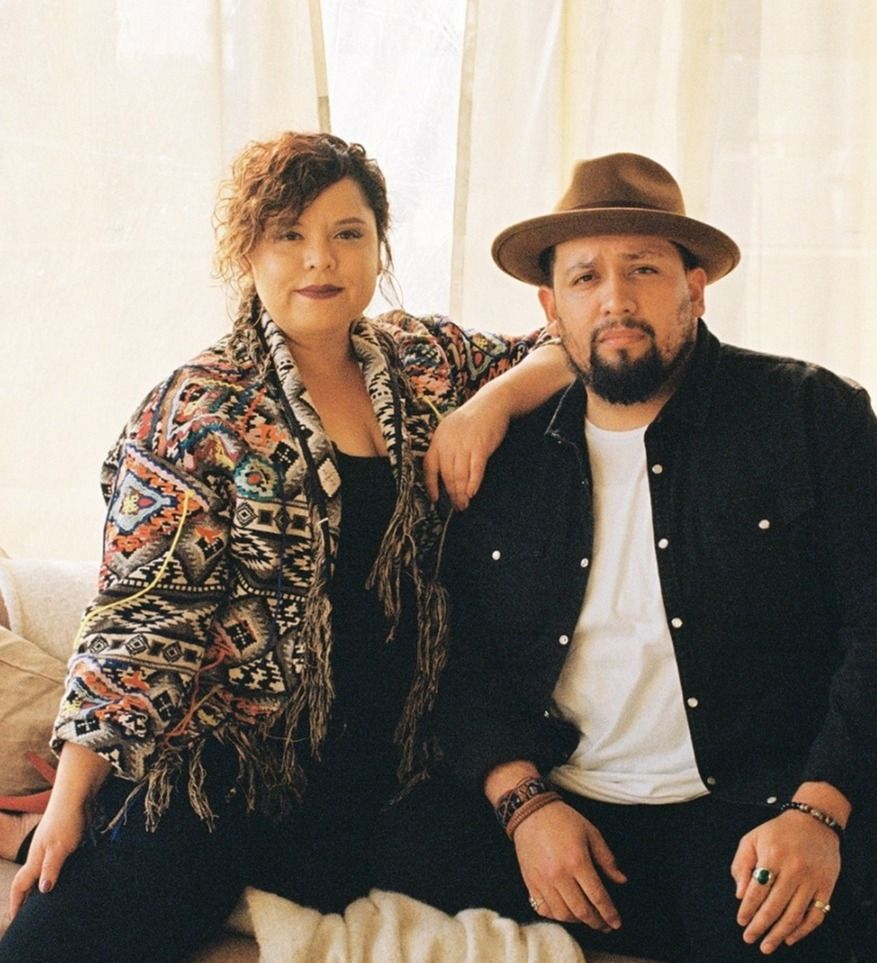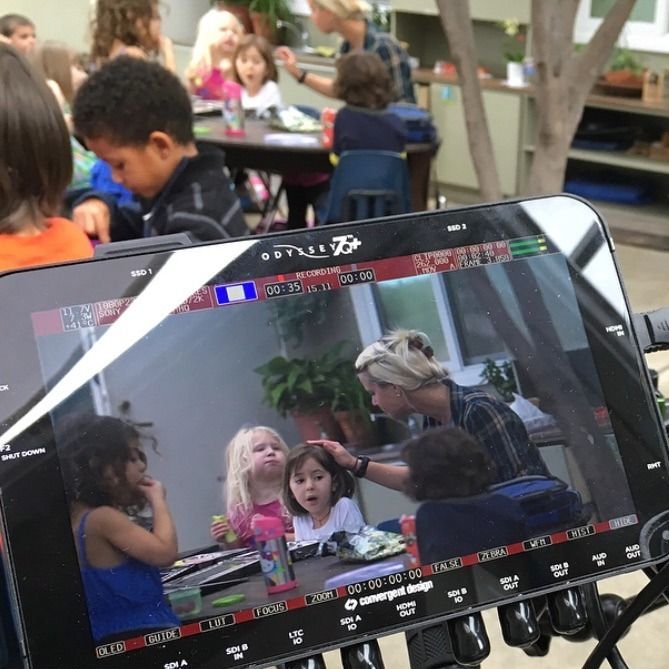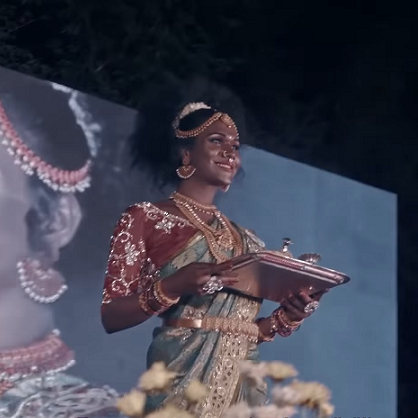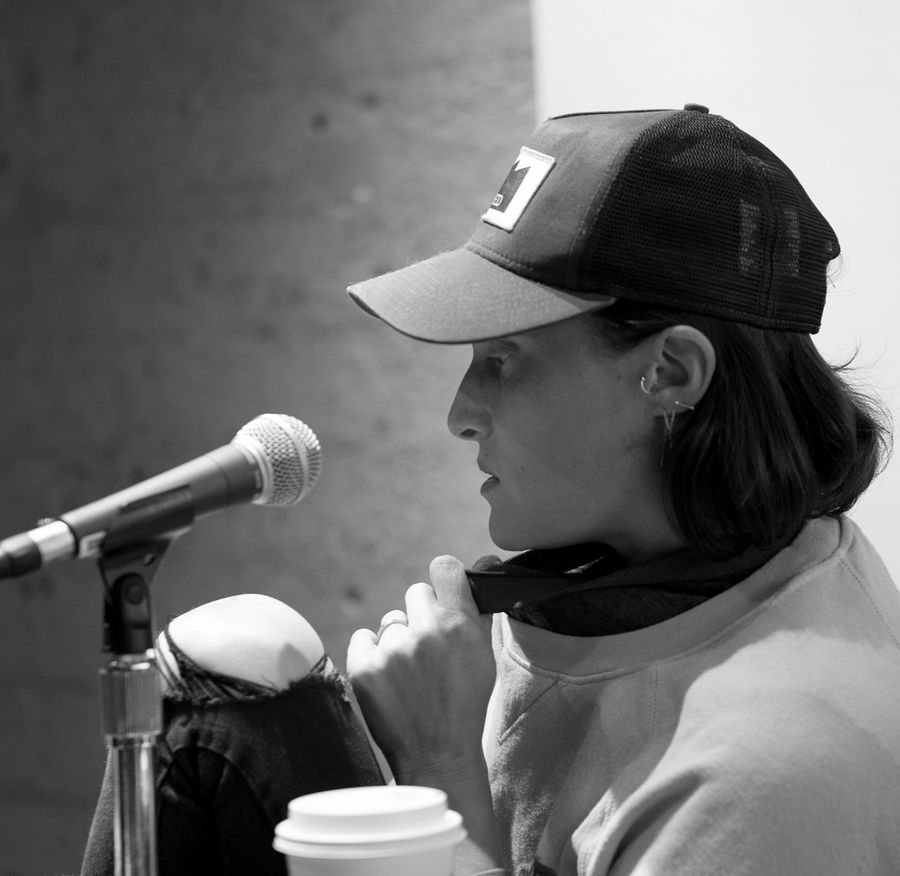Love is sacrifice. It’s a belief first-generation Americans know well, even if we’re practicing it unknowingly. Lo que hacemos es por el sacrificio que ustedes hicieron para nosotros. (What we do is for the sacrifice you did for us.) It’s what we tell our parents whether we’re thriving or barely surviving. Our sacrifice for our family, for our immigrant family, has been ingrained in us from our childhood, whether by words fed to us, actions witnessed, or the touch of our parents’ rigid palms.
Sacrifice as an act of love is interwoven throughout Netflix’s 10-episode series, Gentefied; a series so heavy and naturally explored, that co-creators Marvin Lemus and Linda Yvette Chávez, didn’t realize it until this particular interview.
The Latinx drama series, executive produced by America Ferrera, explores topics that are reflective of Latinx culture. Four years ago, co-creators Lemus and Chávez poured their stories and their struggles into what was initially a seven-episode web series (that never saw the light of day). This series would become a Netflix show, pivotal in fulfilling Latinx audiences’ desire for empowerment through representation.
Centered around three Mexican-American cousins building their own American dream, Gentefied tackles issues of machismo, homophobia, and gentrification, specifically gente-fication in Latino neighborhoods.

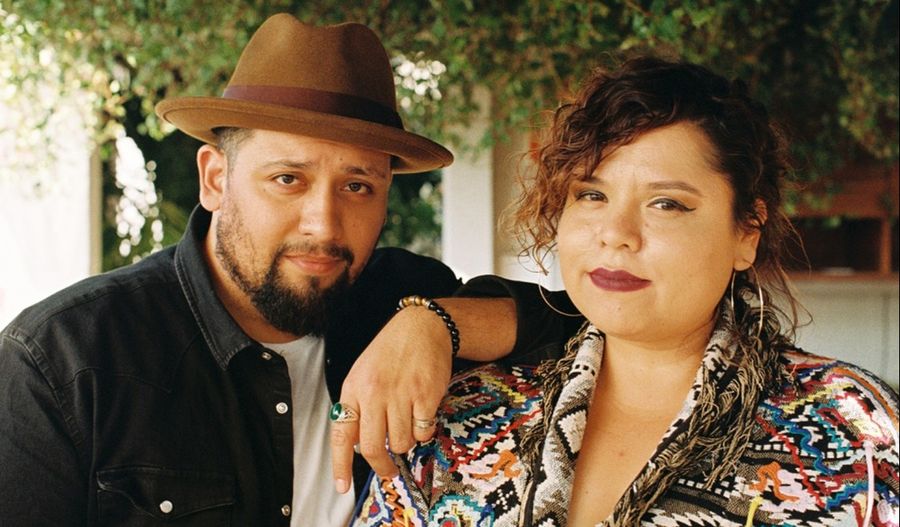
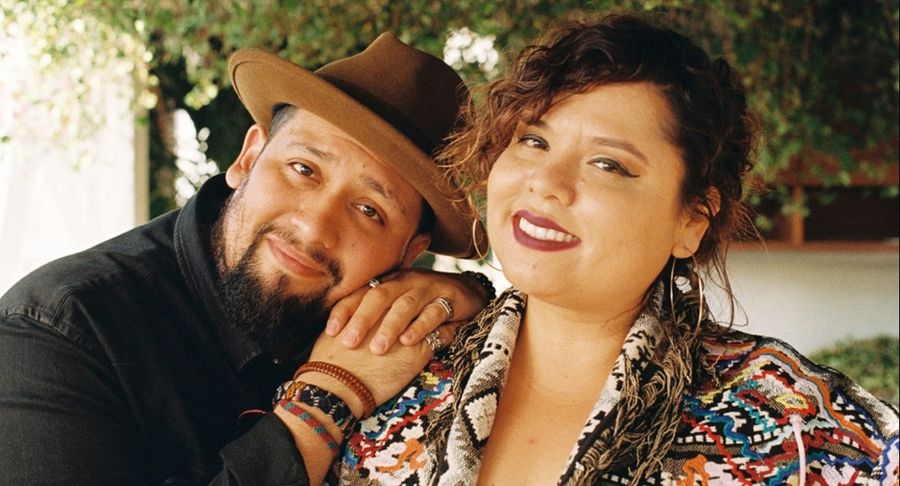
How has the collaboration process been?
Marvin Lemus: Linda and I didn’t know each other before Gentefied. MACRO asked me to find a writing partner because I was a director primarily. I said fine because writing comedy alone sounds like torture. I reached out to Film Independent, because I had just gone through Project Involve. They have this vast alum network; they’ve been working for 25 years and it’s all POC and underrepresented filmmakers. They connected me with Linda. We had such similar backgrounds, not just that we’re both first-gen. We both had undocumented parents. We come from low-income backgrounds. We had the traditional filmmaking [experience] where you spend lots of money, but we also got really good at making shit from nothing and being really scrappy filmmakers. And when we talked about the subject matter [of gentrification], we were both exploring and dealing with the issues in our own lives. We were able to tell from that first conversation that we were having a lot of the same conflicts of identity.
Linda Yvette Chávez: We also did a lot of trauma bonding.
That is a real thing–trauma bonding.
LYC: Yeah, those first few months we sat in this coffee shop on First Street, Primera Taza. We always talk about how we did chisme for like an hour and did therapy, basically. Then, all that stuff turned into what went into the series, because we were talking about our families, our relationships, and what we had been through and what we wanted to see on—
[Chávez, distracted by Lemus taking a photo of her, stops.]ML: Oh sorry, you just look so money right now!
LYC: Now I forgot what I was talking about! Oh, therapy and trauma bonding. There’s a handful of awesome incredible Latinx-centric shows out there, some that, along the way, have paved the road for all of us to come in. But for us, we’ve always wanted to see a very particular narrative about our community that we grew up in. Being the child of immigrants is so important to us.
There were certain relationships we wanted to see—brown love. The Lydia-Erik relationship, what it means for the educated woman to save a man from her community and be with him, is such a narrative that I have experienced, and so many people I know and love have experienced. A woman trying to save her man and talking about masculinity and machismo—these were things that we and our families are going through. We’re the storytellers so we need to put that out there so that people can see themselves and relate to it.
"There was a fear of falling into stereotypes. There were times when we would check each other on certain stories and certain characters. Are we being problematic?…But we come at everything with so much love whenever we do things that it helps us hopefully steer in the right direction."
-Linda Yvette Chávez

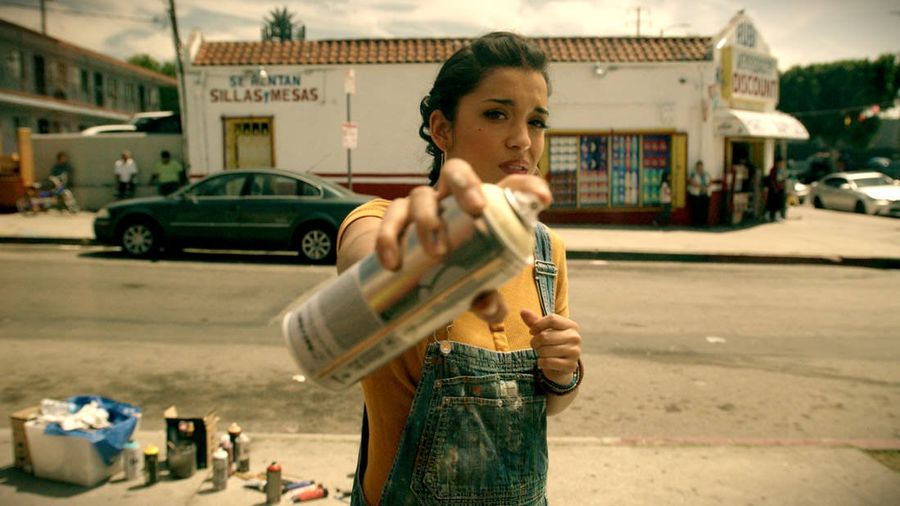
Was it difficult to tell those stories, to put people that looked like us, live lives like us in front of the camera?
LYC: There was a fear of falling into stereotypes. We always talk about how conditioned that is in us, how internalized it is, because when we watch media, we’re watching caricatures of ourselves and stereotypes of ourselves. There were times when we would check each other on certain stories and certain characters. Are we being problematic? It’s this thing that was at the top of our minds, and it was important to us to go against it. But there's so much responsibility to not do that, to the point where you kind of have to let it go as well. Also, we’re writing this for us and our community, and if other folks come in and take that out of context, then that’s their problem. There is fear, but we come at everything with so much love whenever we do things that it helps us hopefully steer in the right direction.
In the series, we see people try to go with change without compromising themselves. Were there any challenges throughout this process where you found yourself fighting change?
ML: For me, that’s the entire show. We wanted to explore gentrification and Boyle Heights, and explore that issue and those themes that we related to. But, admittedly, we went into the digital series a little naive of the responsibility we were taking on in telling that story and exploring that.
When we started developing the TV show, there was a lot of conflict. Are we gonna be contributing to the problem? Is the show going to even help in any way or is it just gonna make things worse? How do we handle that as artists? We do believe with this platform, and as storytellers, we have the tools and the responsibility to shift culture and shift the narrative.
But we can’t fight the fact that we’re at Netflix and it’s a big corporate structure. It’s capitalism and we’re playing the system. We realized eventually that these questions that we’re asking ourselves, we need to make that the show. We don’t have answers. We have what we believe is true in our hearts, but we have to hold space for the conflict.
LYC: And space for some of the truths that come into light. For us, that’s the central thing we always talk about. As children of immigrants, that idea of gentrification and change, and living between worlds, the old and the new, and what that all means—it’s such a big part of our identities.
We come into this world with so much guilt. Our parents sacrifice so much for us and they’re telling us about the American Dream. You’re working, working, working, because we all have that dream of buying our mamas a house and big cars and all these things that we get fed by media about what success looks like. But then as we’re doing that, it’s very individualistic. It’s all about getting to your goals, getting money, getting your dream, and it’s about you. The closer we get to that, the further you get taken away from cultural, family values.
I started writing as art—art as healing and art as activism, as a tool to save our people. The thought that anything that I did with my art would harm anyone is devastating to me. I had to really process that, because I’m really sensitive when it comes to that. Why are we doing this?
For me, what it came down to was that one: this medium, art, is a calling for me. I know that I’m supposed to do it. Two, it has the power to shift culture and also dictate what the narrative is about us, our people in our communities. I’m not gonna take down capitalism in a day. I can’t just show up and dismantle all these structures in a day by myself. I know there’s a lot of people working on that and we’re all trying to get there.
So someone like me, someone like Marvin, and I believe someone like you, who are thinking about these things at a much deeper level, need to be here. We need to be in these spaces.
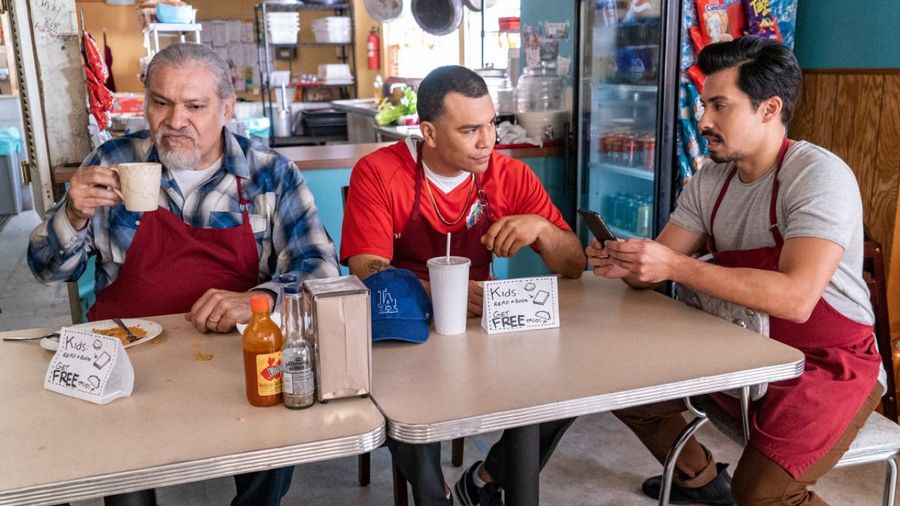
Something I saw throughout the series was how first-generation Americans and immigrants describe or act out love as sacrifice. Sacrifice for us is love. Was that something you guys thought about?
ML: That’s the first time I even thought that. Oh shit, that just hit. Yes it’s true, but also there’s a part of me that feels, have we been brainwashed by our parents so that guilt trips just come? It’s like, “Oh, you were late to class, mijo. That’s not why we came here.” It’s like, Oh my God. I feel so bad. Oh, the sacrifice! [Laughs.]
You get that shit beaten into you a little bit. You’re traumatized. The word sacrifice is a little triggering. I think that’s why we work so hard. This industry is so hard. Filmmaking is the hardest shit I’ve ever done in my life. But, I don’t think I’ll ever, ever, ever fucking feel I’ve worked as hard, or done as much, or given as much, and sacrificed as much as my parents did. They are on a pedestal forever–even with my father who I don’t speak to. I know I learned so much from the work, the sacrifice, the work ethic, and how much they fucking gave to be able to be here, for me to have a shot.
LYC: One of the big themes we would always come back to in the show is community versus self and what it means. Community, including family, and what it means to choose between the two. Do you choose yourself or do you choose your family?
Erik and Ana, for us, are all about love and sacrificing for family; that’s what you gotta do, but, to a fault. I would drop everything to go show up for my family. Whatever emotional labor I needed to do to help them get through a crisis, I’d do. But you can love them so hard, and that can be the very thing that gets in the way of your potential, your goals, and what you need for yourself.
Chris’ experience reflects Marvin’s experience and Erik and Ana’s experience is a lot of my experience. As we went through the process, Marvin started trying to reconnect with his family and I started [on] the opposite way. There’s so much happening in my family right now, but this is a big moment for me. ‘I need you guys to show up for each other, so I can show up for myself right now.’ I’ve come a long way in that.
ML: I’m tripping out right now, because we’ve talked about how we’ve flipped.
LYC: Oh my god, did we just experience our show in our real lives?
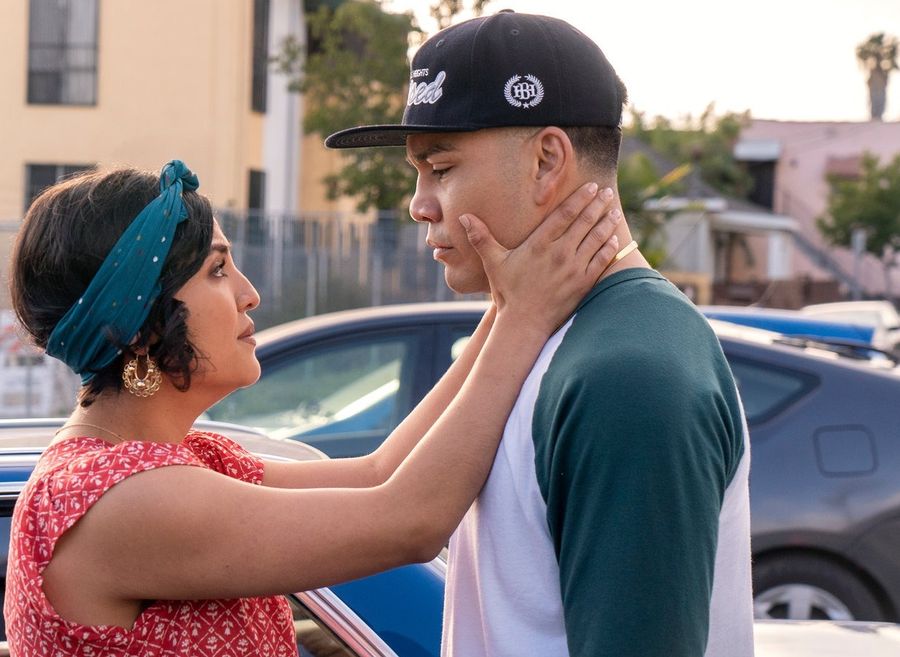
"Filmmaking is the hardest shit I’ve ever done in my life. But, I don’t think I’ll ever, ever, ever fucking feel I’ve worked as hard, or done as much, or given as much, and sacrificed as much as my parents did."
-Marvin Lemus
Have you, as creatives, had the conversation with your family on whether your job was a “real job”?
LYC: I’ve had a mixed experience. When I was little, I’d tell my mom, “I’m gonna be a lawyer. I’m gonna make a lot of money. I’m gonna save us.” And they’d be like, “I don’t know, mija. I think you’re a writer.” I would write poetry and short stories. I’d be like, “No, I’m not. This is why we’re broke, because you want me to go write. They don’t want me to make money.” I was too grown for my ass.
You were the parent almost.
LYC: My parents are incredible. But in terms of emotional stuff, I definitely did a lot of mini-person parenting. I wanted to save my family. Writing? That’s some bullshit. My parents really believed in me and my ability. But then later in life, explaining to them exactly what I do is a process. I always tell the story of going to Stanford. I had to convince my mom to let me go, because she couldn’t understand. She’d say, “Mija, I don’t understand why you can’t stay close to home. There’s the really nice school we went to the other day and you could live at home.” She meant UCLA. I was like, “A’ma, you have to understand. People like me don’t get into Stanford. People like us don’t go to Stanford. You have to understand how big this is, I have to go.”
A few years later, she wore a “Stanford Mom” sweatshirt to the dentist, and the dentist was like, “Your daughter goes to Stanford?! She must be brilliant.” My mom calls and says, “Mija, Stanford’s a big deal!” I was like, “A’ma, I’ve been telling you this for a hot minute!” Now they get it. It’s exactly what’s in the show. [Lydia] is going after her dream, but then you’re [leaving] behind the people you love, and family, and culture. And that’s something that pulls us back sometimes, but you have to do it.
ML: Similarly, my mom was like, “You’re gonna go after your dreams!” She worked in radio most of my life. She worked from when I was born, from cleaning houses in Bakersfield to working on air, slowly climbing up to the bigger radio stations until she was here in LA. I think because she was in entertainment, she’s always been cool with it. By the time I was in high school, I was able to get an actual camcorder and make my shorts. I remember begging my mom to let me get a job, because I was tired of hearing that we don’t have money. I had a completely different idea of what it meant to be directing. I was like, “I’ll make money, that’s what I’m going to do and that’s how I’m gonna save my family.” Then you become an adult and you realize this shit’s really hard. This might not work out forever, but there was always the support.

Marvin Lemus
Marvin Lemus is an award-winning screenwriter, director, and producer with a passion for telling unapologetic stories. Lemus’ eclectic body of work ranges between the film festival circuit and the digital world. Most recently, Lemus co-created and directed GENTEFIED, a bilingual digital series executive produced by America Ferrera and MACRO (Fences, Mudbound). Gentefied premiered at the 2017 Sundance Film Festival and is now in production as a half-hour dramatic-comedy for NETFLIX. Lemus' career started after directing his undergraduate thesis film. It was terrible and incredibly unfunny. Determined to learn how to “guarantee a laugh”, Lemus adopted the "Robert Rodriguez Method" of filmmaking and obsessively wrote, produced, directed, edited, and sometimes acted in close to 200 productions. During that time, Lemus studied at the Upright Citizen's Brigade Theatre which is where he met the other founding members of the award-winning sketch group, THE KIDS TABLE (TKT).
Lemus was a performer, producer, director, and editor of TKT. Over the course of three years, TKT's social satire and topical parodies garnered over 1 million views and was frequently featured on Huffington Post, Gizmodo, Buzzfeed, and Funny or Die to name a few. They even won a free trip to Switzerland once to receive an award for a video he shot in his living room with 50 bucks. Best ROI ever. Lemus’ success with low-budget videos quickly led to rent-paying work in digital comedy led to working with rising comedy stars including Tessa Thompson, Olivia Munn, and Lil’ Rel Howery. Lemus also directed successful viral videos for brands such as Vogue, Anheuser-Busch, Nissan, MLB, Time, and the wildly successful digital campaign for the feature film, DEAR WHITE PEOPLE, which received over 8 million views. Lemus is a Film Independent Project Involve Alumni, but only after applying six years in a row. It was as a Project Involve Fellow that he was able to direct the short film, VÁMONOS. Vámonos went on to screen internationally in over 40 film festivals and won awards at NBCUniversal Short Film Festival, Frameline40, and a prestigious Imagen Award. Additionally, Lemus is an alum of the 2017 Sony Diverse Director's Program and is a current fellow of the ‘18-’20 Disney/ABC Directors Fellowship. Lemus is a Mexican + Guatemalan-American anchor-baby born in the hot AF desert of Bakersfield, CA.
Linda Yvette Chávez
Linda Yvette Chávez is an award-winning Xicana screenwriter, producer, and director. She co-created Netflix’s much-anticipated series GENTEFIED with Marvin Lemus. What started as a digital series that premiered at the 2017 Sundance Film Festival, grew into a TV series at the center of a six-network bidding war that found its home with the good people of Netflix.
In a past life, Linda helped form and establish COMEDIVA, a successful digital platform and production studio. As VP of Programming, she developed, wrote, and produced tons of viral sketches and digital series for clients like Nickelodeon, MiTu Network, Pepsi, and Univision where she was responsible for co-visioning and establishing Univision's first English-language digital platform, FLAMA. Linda’s work has received millions of views and has been featured on CNN, Good Morning America, Wired, AdWeek, and The Huffington Post.

